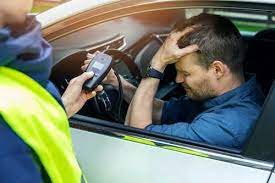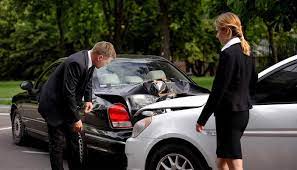
Cause and Effect of Drunk Driving
While the causes of drunk driving are many, peer pressure is one of the most common factors that contribute to this behavior. Young adults often feel the need to impress their friends and don’t want anyone else to drive their car. Additionally, teens often don’t know their own body limits for alcohol, which makes them more susceptible to driving drunk. Even when designated drivers agree to drive, they are sometimes cajoled into drinking less than necessary and end up driving drunk.
Drinking alcohol affects coordination
Driving is a complex task, requiring the driver to perform a number of simultaneous tasks. In addition to balancing the car, the driver must be able to assess speed, position, and other traffic. Impaired coordination makes it very easy for the driver to hit other cars or run a red light, leading to an accident. In addition, impaired coordination reduces the driver’s attention span and ability to process information.
Impaired coordination is a serious issue for drunk drivers. Drivers who have been drinking are less able to react to changes in a situation, which makes it much more difficult for them to make a timely decision. Impaired coordination reduces a driver’s reaction time by fifteen to twenty-five percent. Impaired coordination also reduces the driver’s judgment and ability to anticipate problems. These factors contribute to the likelihood of accidents, injuries, and fatalities.
Judgment
The present study applies psychological theories of judgment and decision-making to study the cognitions that influence drunk driving decisions. The study used four groups of individuals, who were evaluated on their perceptions of drunkenness based on a series of cues. The participants were also assessed on their beliefs about the probability of being pulled over and being involved in an accident. In addition, tendencies toward drunk driving were also examined.
A drunk driving accident is one of the most common types of accidents involving alcohol. It is a criminal offense that can lead to serious injuries or death. In fact, it is estimated that more than 11,600 people will die in accidents involving alcohol. As such, drunk driving cases are a significant problem in the U.S.
Vision
Vision impairment is a common cause of drunk driving accidents. People with impaired vision are more likely to crash their car into another car or into pedestrians. These drunk drivers are less likely to see the signs for detours or stop signs. This can lead to head-on collisions which can be devastating and cause catastrophic injuries or even death.
Vision impairment can affect a driver’s ability to see clearly, especially at night. It can also impair their ability to make judgments. Because driving involves constant decision-making, impaired vision can make driving more dangerous.
Reaction time
Reaction time to drunk driving can be influenced by several factors. One of these factors is BAC, or blood alcohol concentration. A higher BAC results in a slower reaction time, but even people who are below the legal limit can still be impaired by alcohol. For example, someone with a BAC of 0.08 may go twelve feet before they can react to an obstacle in the road. This is significant, because it increases the risk of an accident.
In one study, drivers’ reaction times were evaluated in a driving simulator. It was noted that young drivers under the age of 26 tended to have higher mean reaction times than their older counterparts. The study was done with a driving simulator, which allows users to practice in a simulated environment for an unlimited number of times. This allows the researchers to evaluate drivers’ reaction time to various unsafe scenarios, such as drunk driving.
Punitive damages
Punitive damages are awarded to injured victims of drunk driving accidents. These awards are designed to punish the drunk driver’s behavior and make him an example of other drivers. These damages are rarely awarded in most car accidents because they do not provide an opportunity to obtain such an award. However, punitive damages are a viable option for drunk drivers because they are often difficult to recover.
Pennsylvania courts can award punitive damages if the defendant’s actions were outrageous and were committed with bad intent. The defendant must have had “reckless indifference” to cause the accident or injury, and the defendant must have been over the legal limit at the time of the incident.

